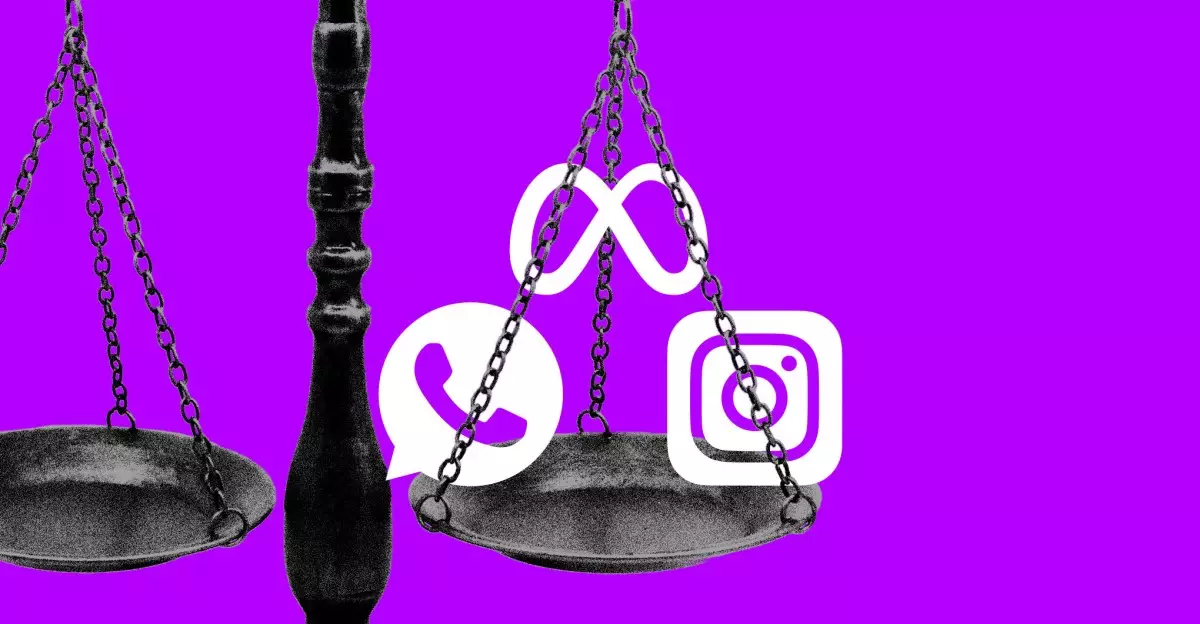The FTC v. Meta trial represents a pivotal moment in the tech industry, where corporate acquisitions are thrust into the public eye and scrutinized under the harsh lens of antitrust laws. During this trial, Mark Zuckerberg, the very figurehead of technological innovation at Meta, undertakes a bold defense against accusations that he orchestrated a ‘kill’ strategy against prospective competitors WhatsApp and Instagram. As he faced a relentless examination from government lawyers, the tension in the air became palpable. It is a narrative that raises important questions not only about Zuckerberg’s intentions but also about the broader implications of corporate acquisitions in the tech landscape.
Reflecting on Strategic Acquisitions
At the heart of Zuckerberg’s testimony lies his passionate rebuttal against the idea that his acquisitions were motivated by fear or malice. “I’d do it again,” Zuckerberg asserted, reflecting a deep-seated belief in the value of both WhatsApp and Instagram as transformative tools rather than mere checkers on a competitive chessboard. Zuckerberg characterized his acquisition of WhatsApp as a strategic move that responded to an evolving communication landscape. During his testimony, he highlighted the shift from public social media interactions to private messaging, arguing this transition was indicative of changing user habits.
WhatsApp’s trajectory, he claimed, was less about competing with Facebook and more about complementing it amidst a growing concern over privacy in digital communications. However, the FTC maintains that Zuckerberg’s actions were more self-serving, designed to neutralize potential threats to Facebook’s supremacy. Therefore, it becomes essential to dissect whether Zuckerberg’s claims of visionary strategy hold water or are merely cover for monopolistic ambitions.
The Intention Behind Acquisition: Fear or Foresight?
Zuckerberg admitted that he had considered the competitive implications of WhatsApp during its acquisition. Yet, his focus hinged on his interactions with WhatsApp’s co-founders, whom he depicted as dispassionate about social media growth. He argued, “I thought it would be extremely unlikely for WhatsApp to compete with Facebook,” thereby painting a picture of a leader who is not merely a businessman but one who perceives the intangible qualities, such as ambition and corporate ethos, as part of the “valuation” process.
However, whether these insights validate his actions remains debatable. If Zuckerberg’s projections about WhatsApp’s growth were as astute as he claims, it raises questions about why he would then push for the augmentation of its social features post-acquisition. One could argue that these pivots reflect not a genuine service improvement but rather a calculated effort to absorb and stifle competition under the guise of enhancement.
The Role of User Data and Monetization Strategies
As the examination continued, Zuckerberg disclosed fascinating statistics about WhatsApp’s massive user growth, mentioning its ascent to nearly 3 billion users—an accomplishment that dwarfed even his own predictions at the time of acquisition. This impressive reach can be positioned as a testament to his strategic vision: tapping into a user base that translated into substantial revenue streams. With Meta generating approximately $10 billion annually from interactions across WhatsApp, Instagram, and Messenger, the transformation of user engagement into monetization creates a narrative of success.
Nevertheless, the juxtaposition of such figures with the antitrust claims presents a complex conundrum. Is this data indicative of rightful success in fostering innovation, or does it reveal a darker underbelly of accumulating digital power at the expense of market diversity? The path to understanding this balance lies in assessing not just the figures but the ethical ramifications of accruing user data within the contours of digital ecosystems.
Acknowledging the Weight of Responsibility
As Zuckerberg navigated the courtroom, he also offered a nuanced view of his leadership style, illustrating the complex dynamics that arise in strategic decision-making. He acknowledged his decisions regarding Instagram and how it grew from a modest 10 million users to over 2 billion, crediting an internal culture that sought resources to foster rapid scalability. However, this narrative is overshadowed by the exits of key players like Kevin Systrom and Mike Krieger, highlighting potential discontent and the challenges of maintaining original entrepreneurial vision within a larger corporate structure.
In a compelling twist, former Meta COO Sheryl Sandberg’s admission that she had misjudged the worth of the Instagram acquisition further calls into question the wisdom underpinning those high-stakes decisions. Her testimony contributes to the notion that, while Zuckerberg’s decisions may have yielded substantial user growth and corporate revenue, they also raise profound considerations about the nature of competition and innovation in an increasingly consolidated market.
Ultimately, the trial unfolds not merely as a legal battle for Meta but as an ethical examination of modern capitalism. It probes whether decisive leadership should be measured in terms of monopolistic growth or whether it should harmonize with wide-ranging opportunities for innovation and diversity within the tech ecosystem.


Leave a Reply